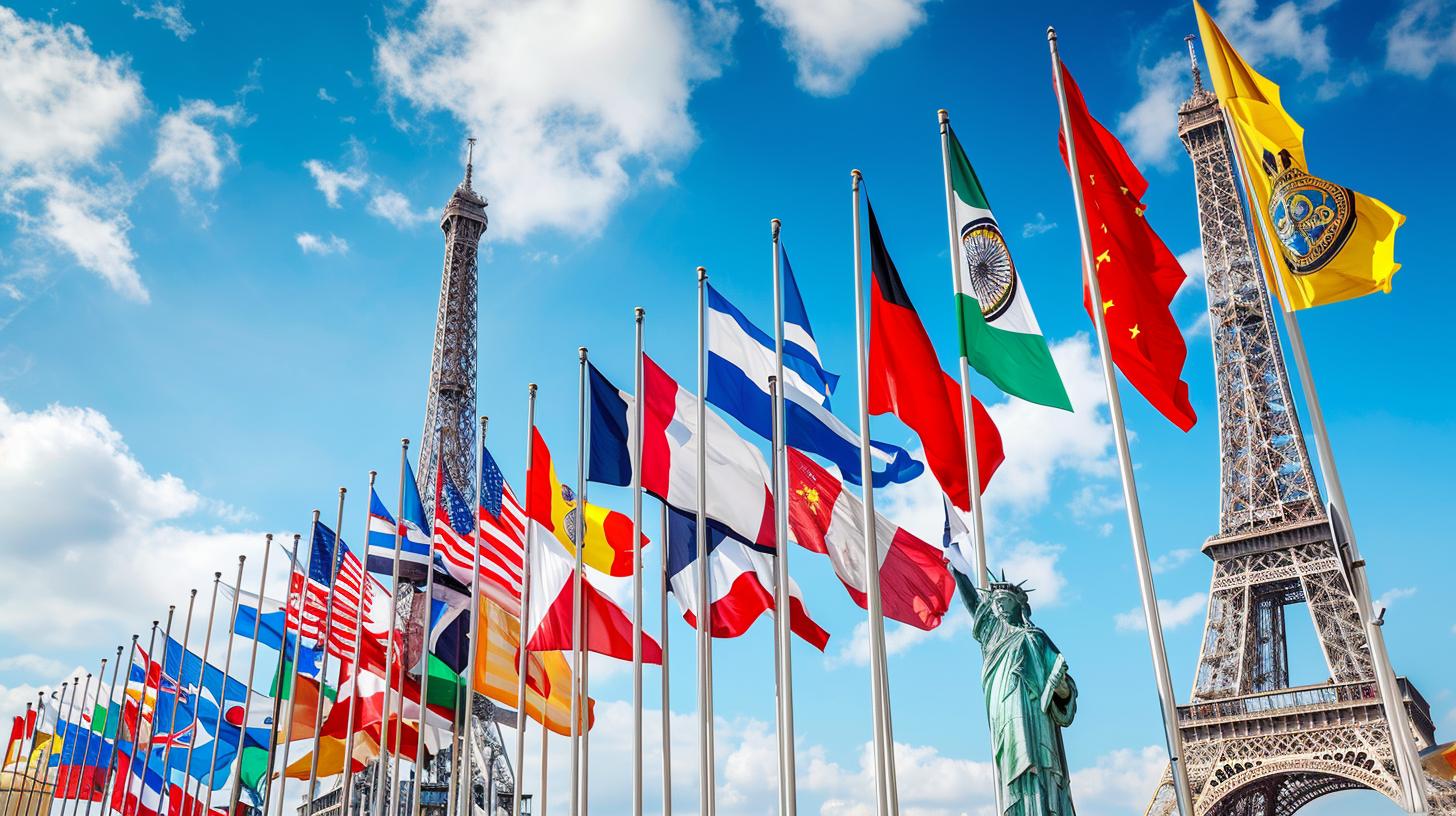Are you struggling with conflicts in your multi-cultural relationship? Differences in values, beliefs, and communication styles can lead to misunderstandings and conflicts. However, addressing conflict effectively can strengthen relationships and foster cultural understanding. In this article, we will provide essential tips and strategies for addressing conflict in multi-cultural relationships.

Understanding the Curious Cross-Cultural Dater
Before diving into the tips and strategies, it’s essential to understand the needs and interests of the Curious Cross-Cultural Dater. As someone who is open-minded, eager to learn about dating in different cultures, and appreciates authentic and well-researched insights, you value guidance that fosters cultural understanding and promotes inclusive, genuine connections in dating. Cultural sensitivity and avoiding stereotypes are crucial while providing engaging, practical, and accessible advice.
| Understanding the Curious Cross-Cultural Dater | Acknowledge and Respect Cultural Differences |
|---|---|
| Open-minded and eager to learn about dating in different cultures | Acknowledge and respect cultural differences to avoid misunderstandings and conflicts |
| Appreciates authentic and well-researched insights | Cultural differences can impact the way people communicate and express themselves |
| Values guidance that fosters cultural understanding and promotes inclusive, genuine connections in dating | Avoid stereotypes and assumptions about other cultures |
| Cultural sensitivity and avoiding stereotypes are crucial | Taking the time to learn about your partner’s culture can help you understand their perspective and avoid conflicts |
Addressing Conflict in Multi-Cultural Relationships
- Acknowledge and respect cultural differences to avoid misunderstandings and conflicts.
- Use “I” statements to avoid escalating conflict and stay focused on the present issue.
- Seek outside help and learn from the conflict for future growth and forgiveness in conflict resolution.

Acknowledge and Respect Cultural Differences
One of the most common sources of conflict in multi-cultural relationships is differences in communication styles, values, and beliefs. It’s crucial to acknowledge and respect these differences to avoid misunderstandings and conflicts.
According to HelpGuide.org, cultural differences can impact the way people communicate and express themselves. For example, in some cultures, indirect communication is preferred, while in others, direct communication is valued. Acknowledging these differences and respecting them can help avoid misunderstandings and conflicts.
Avoid stereotypes and assumptions about other cultures. Each person is unique, and their cultural background is just one aspect of their identity. Taking the time to learn about your partner’s culture can help you understand their perspective and avoid conflicts.

Practice Active Listening
Active listening is a crucial skill in conflict resolution. It involves giving your full attention to the speaker, understanding their perspective and feelings, and responding in a way that shows you have heard and understood them.
According to Berkeley HR, active listening can help build trust and respect in relationships. It involves techniques such as giving full attention, summarizing, and clarifying. Avoid interrupting or dismissing the speaker’s feelings or perspective.
Active listening can be challenging, especially in the midst of conflict. However, practicing this skill can help de-escalate conflicts and lead to more effective resolutions.
Use “I” Statements
When addressing conflict, it’s crucial to use language that is less confrontational and avoids blaming the other person. “I” statements are a helpful tool in this regard.
“I” statements involve expressing your own feelings and needs, rather than assuming the other person’s intentions or motivations. For example, instead of saying “You always do this,” you can say “I feel upset when this happens.”
According to HelpGuide.org, “I” statements can help avoid escalating conflict and promote a more constructive dialogue. It’s important to use “I” statements in a way that is respectful and non-blaming.
Focus on the Present Issue
When conflicts arise, it can be tempting to bring up past conflicts or unrelated problems. However, this can make the current conflict more difficult to resolve. Stay focused on the present issue at hand.
According to HR Cloud, focusing on the present issue can help prevent the conflict from becoming overwhelming. Avoid bringing up unrelated issues or making assumptions about the other person’s motives.
Staying focused on the present issue can also help identify the underlying needs or values that are driving the conflict. This can lead to more effective resolutions that address the root cause of the conflict.
Find Common Ground
Finding common ground is a crucial part of conflict resolution. It involves looking for areas of agreement and finding a compromise that satisfies both parties.
According to HelpGuide.org, finding common ground can help de-escalate conflicts and promote a more constructive dialogue. Approach the conflict with an open mind and a willingness to find a solution that works for both parties.
Techniques for finding common ground include active listening, brainstorming solutions, and identifying shared values or goals. Approach this process with a spirit of collaboration rather than competition.

Seek Outside Help
When conflicts persist, it may be necessary to seek the help of a therapist or mediator. These professionals can provide an outside perspective and help facilitate a more constructive dialogue.
According to Berkeley HR, seeking outside help can be especially important when power imbalances or deep-seated conflicts are present. Find a qualified professional who is experienced in working with multi-cultural couples.
The process of seeking outside help may involve multiple sessions and a commitment to working through the conflict in a constructive and respectful manner.
Learn from the Conflict
Conflicts can be opportunities for growth and learning. By reflecting on the conflict, identifying triggers, and avoiding similar situations in the future, you can build stronger, more resilient relationships.
According to HR Cloud, learning from the conflict involves taking responsibility for your own actions, reflecting on the impact of your behavior, and identifying ways to improve your communication and conflict resolution skills.
By learning from the conflict, you can build stronger relationships and avoid similar conflicts in the future.
Case Study: Overcoming Cultural Differences in Communication
When Sarah, an American, started dating Ahmed, a Lebanese man, they quickly realized there were differences in their communication styles. Sarah was used to being direct and straightforward, while Ahmed was more indirect and polite.
Their first major conflict arose when Sarah was upset about something Ahmed had done, but instead of telling him directly, she gave him the silent treatment. Ahmed, not understanding the reason for her sudden coldness, became increasingly frustrated and defensive.
After several days of tension, they finally sat down to talk and realized the root of the problem was their different communication styles. Sarah learned that Ahmed appreciated more indirect communication, while Ahmed learned that Sarah needed to express herself more directly.
From then on, they made a conscious effort to understand each other’s communication styles and to express themselves in a way that the other would understand. By acknowledging and respecting their cultural differences, they were able to avoid further misunderstandings and conflicts in their relationship.
Be Open to Forgiveness
Forgiveness is a crucial part of conflict resolution. It involves letting go of grudges and moving forward with a positive attitude.
According to HelpGuide.org, forgiveness can help build trust and promote a more positive relationship. Approach forgiveness with an open mind and a willingness to let go of negative feelings.
Forgiveness does not mean forgetting or condoning the behavior that led to the conflict. Rather, it involves finding a way to move forward in a way that is respectful and constructive.
Addressing Workplace and Sexual Violence
In some cases, workplace and sexual violence can impact multi-cultural relationships. It’s important to address these issues and seek appropriate support.
According to UN Women, peacekeepers can play a crucial role in combating sexual violence and protecting civilians. Effective strategies include establishing clear policies and procedures, providing training on prevention and response, and partnering with local organizations.
In the workplace, it’s important to establish open communication and listen to employee concerns. Steps such as acknowledging the problem, allowing individuals to express their feelings, defining the problem, identifying underlying needs, finding common ground, and generating solutions should be taken.
Conclusion
Addressing conflict in multi-cultural relationships can be challenging, but it’s also an opportunity for growth and learning. By acknowledging and respecting cultural differences, practicing active listening, using “I” statements, and finding common ground, you can build stronger, more resilient relationships. Seeking outside help, learning from the conflict, and being open to forgiveness are also important strategies. Promote cultural sensitivity and avoid stereotypes while providing practical and accessible advice. Remember, by working through conflicts in a constructive and respectful manner, you can strengthen your multi-cultural relationship.
Common Questions
Who benefits from addressing conflict in multi-cultural dating?
Everyone benefits when issues are resolved respectfully.
What is the importance of understanding communication styles?
It helps avoid misunderstandings and conflicts.
How can you address cultural differences in communication?
By showing respect, and being open-minded and patient.
What if my partner refuses to address conflicts in our relationship?
Communication is key, express the importance of resolving conflicts.
How can addressing conflict improve a multi-cultural relationship?
It can lead to better understanding, trust, and respect.
What if I don’t know how to address a conflict in a multi-cultural relationship?
Seek help from a counselor or mediator who is knowledgeable in cross-cultural communication.




